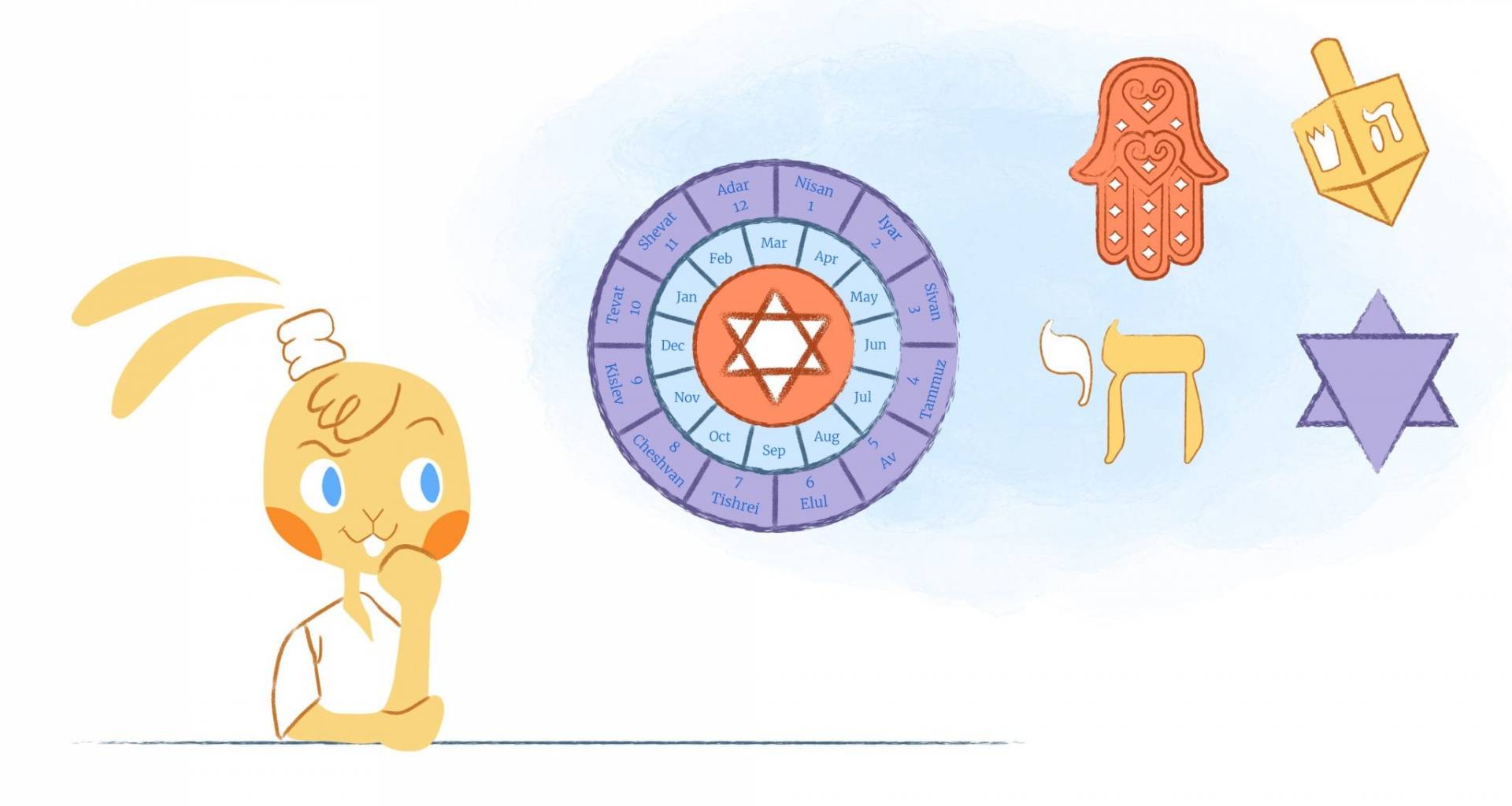Another poster made an argument for Christmas being the birthday of Jesus.
So the argument starts with when John the Baptist was conceived. The angel announces this to John's father in a scene introduced:
John's father, Zechariah, is a member of the Abijah division of the priesthood, and the announcement was made when that division had special duties at the temple. There were 24 such divisions, each getting their duties in turn. Each duty was from Sabbath to Sabbath, eight days, but overlapping on the Sabbath, so the cycle repeats every 24 weeks.
Two important points to note. The first is that each division served twice a year - and a few served three times - given there are 52 weeks in the year. The second is that when in the year a division served would change year by year. If they served during the first week of April and the third week of September one year, they might serve during the first week of March and the third week of August the year after.
The destruction of the Temple in Jerusalem gives us a good datum point to pin the cycles to. Supposedly Zechariah would have been working 8 to 14 Sept, in 3 BC (according to here). From there, it is assumed John was born some time from 20 to 26 June, 2 BC, and then that Jesus was born six months later. In SteveB's world, "December 25th is the result", but in reality this only gives a approximate date.
Zechariah was working 24 days that year, eight in the summer, and another eight the previous winter, so already we have a range of 16 days as our starting point. We do not know how long after that his wife conceived, but up to a week seems plausible, giving a range of about 28 days. Jesus was about six months later, but was that five and a half months? Or six and a half? This gives a range of about twelve weeks in the year, so to conclude it had to be 25th December is just nonsense!
And even at that, there are some assumptions that are uncertain. It is not clear how they tracked the year to year variation; there are two options, and this assumes one of those based on the figure they want. As the above linked web site say: "This model has been shown to produce results inconsistent with Jesus’ early winter birth, and therefore is not used here." To be clear, they are only trying to show the data is consistent with a 25 December birth, not prove that that was the birthday, so is reasonable for them. But not if you are hoping for proof!
Was Jesus born in 2 BC? Herod died in 4 BC, so if Matthew is correct, then no, Jesus must have been born at least two years earlier. The census of Luke's nativity was AD 6-7, so again a different year. And a different year can move the dating by months. In fact this would suggest it was not 25 December.
To conclude that the specific day was 25 December based on this dating is farcical. It is believing it because you want it to be true. It is faith.
There is a huge leap where he suddenly declared: "Depending on which is used, December 25th is the result." However, that is pretty standard for him; it is faith after all. The argument is based on assuming the nativity in Luke is true; I do not for a moment think it is, but will assume it for the sake of the discussion.Actually, according to 1 Chronicles 24, David defined a 24 period cycle of the priesthood service calendar.
The period of Abijah was the 8th.
Zechariah, John the Baptist's father, was a levite, and his lineage was in the lineage of Abijah. This actually is tied to the Jewish calendar. It's pretty well defined in Jewish culture.
Abijah served his period, and based on the comment of Gabriel, he wound up having a son 9 months later.
In the 6th month of Elizabeth's pregnancy, Mary hears about it and learns she is pregnant with Jesus.
So, 15 months after Zechariah's service, Jesus is born.
Just when do you think that period of service took place?
There are two options.
1- those periods of service are broken into two, one week periods.
2- they're broken into one two week period of service.
The twenty four periods make up the whole year. So, 12 months, 2 periods per month.
The Jewish calendar starts with the Jewish month of Nisan. It's date varies year to year (comparing it to the Julian calendar). Furthermore, the Jewish calendar is a 360 day year. Not the 365 day year, with the leap year.
I suppose if you're really motivated, you can use the Julian calendar, and the Jewish calendar, and work backwards.
That year, the year would have started in either March or April.
I recall reading years ago that Jesus entered Jerusalem on March 6th... but, that's the week leading up to his death (Palm Sunday), not his birth.
Depending on which is used, December 25th is the result.
You're more than welcome to do your own research. I actually want you to.
So, don't disappoint me. Your ongoing desperation at forcing paganism in order to make sure you spend your eternity in the lake of fire is getting old. Actually, it's been old from the get go.
Your longstanding practice of playing leprechaun is hurting you. Regardless of what you want to believe.
So the argument starts with when John the Baptist was conceived. The angel announces this to John's father in a scene introduced:
Luke 1:8 Once when Zechariah’s division was on duty and he was serving as priest before God, 9 he was chosen by lot, according to the custom of the priesthood, to go into the temple of the Lord and burn incense. 10 And when the time for the burning of incense came, all the assembled worshipers were praying outside.
John's father, Zechariah, is a member of the Abijah division of the priesthood, and the announcement was made when that division had special duties at the temple. There were 24 such divisions, each getting their duties in turn. Each duty was from Sabbath to Sabbath, eight days, but overlapping on the Sabbath, so the cycle repeats every 24 weeks.
Two important points to note. The first is that each division served twice a year - and a few served three times - given there are 52 weeks in the year. The second is that when in the year a division served would change year by year. If they served during the first week of April and the third week of September one year, they might serve during the first week of March and the third week of August the year after.
The destruction of the Temple in Jerusalem gives us a good datum point to pin the cycles to. Supposedly Zechariah would have been working 8 to 14 Sept, in 3 BC (according to here). From there, it is assumed John was born some time from 20 to 26 June, 2 BC, and then that Jesus was born six months later. In SteveB's world, "December 25th is the result", but in reality this only gives a approximate date.
Zechariah was working 24 days that year, eight in the summer, and another eight the previous winter, so already we have a range of 16 days as our starting point. We do not know how long after that his wife conceived, but up to a week seems plausible, giving a range of about 28 days. Jesus was about six months later, but was that five and a half months? Or six and a half? This gives a range of about twelve weeks in the year, so to conclude it had to be 25th December is just nonsense!
And even at that, there are some assumptions that are uncertain. It is not clear how they tracked the year to year variation; there are two options, and this assumes one of those based on the figure they want. As the above linked web site say: "This model has been shown to produce results inconsistent with Jesus’ early winter birth, and therefore is not used here." To be clear, they are only trying to show the data is consistent with a 25 December birth, not prove that that was the birthday, so is reasonable for them. But not if you are hoping for proof!
Was Jesus born in 2 BC? Herod died in 4 BC, so if Matthew is correct, then no, Jesus must have been born at least two years earlier. The census of Luke's nativity was AD 6-7, so again a different year. And a different year can move the dating by months. In fact this would suggest it was not 25 December.
To conclude that the specific day was 25 December based on this dating is farcical. It is believing it because you want it to be true. It is faith.



